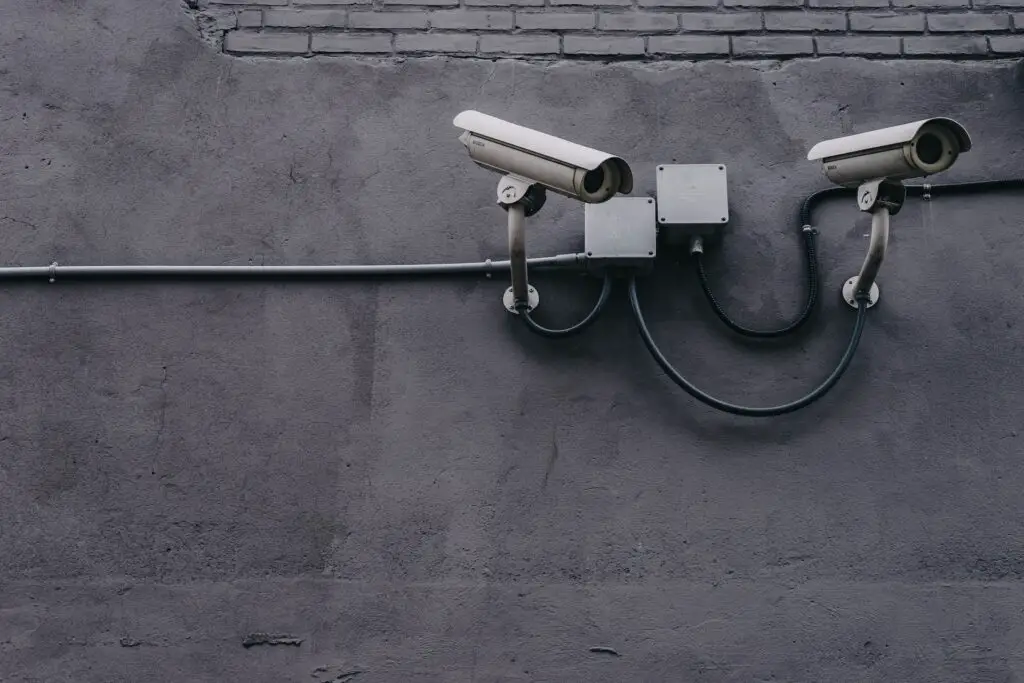Security is a critical aspect of any business, regardless of its size or industry. With the increasing reliance on technology and the internet, businesses face a growing number of security threats that can have a significant impact on their operations and reputation. From cyberattacks to physical theft, the consequences of a security breach can be severe, ranging from financial losses to legal liabilities and damage to brand image.
One of the main reasons why security matters for businesses is the protection of sensitive information. Companies collect and store a vast amount of data, including customer information, financial records, and trade secrets. If this information falls into the wrong hands, it can be used for malicious purposes, such as identity theft, fraud, or corporate espionage. Therefore, businesses must implement adequate security measures to safeguard their data and prevent unauthorized access.
Another reason why security is crucial for businesses is compliance with regulations and standards. Many industries are subject to specific laws and regulations that require them to protect sensitive information and maintain a certain level of security. For example, healthcare organizations must comply with HIPAA regulations, while financial institutions must adhere to PCI DSS standards. Failure to comply with these regulations can result in severe penalties and legal consequences.
- Security and Customer Trust
- Legal Compliance and Security
- Cybersecurity in the Digital Age
- Physical Security Measures
- Employee Training and Security
- Investing in Security Solutions
- Conclusion
Security and Customer Trust
Security is a vital aspect of any business, especially those that rely on customer trust to succeed. When customers trust a business with their sensitive information, they expect that the business will do everything in their power to keep that information safe and secure. Failure to do so can lead to a loss of trust, which can be difficult to regain.
One of the most significant benefits of strong security measures is the trust that customers have in the business. When customers know that their data is being protected and secured, they are more likely to trust the business with their information. This trust can lead to increased customer loyalty, repeat business, and positive word-of-mouth advertising.
On the other hand, a data breach or security incident can quickly erode customer trust. Customers may feel violated or betrayed when their information is compromised, leading to negative reviews, lost business, and even legal action. It is crucial for businesses to take security seriously and implement strong measures to protect their customers’ data.
To build and maintain customer trust, businesses must take a proactive approach to security. This includes implementing strong passwords, encrypting sensitive data, and regularly updating security protocols. It is also important to have a plan in place in case of a security incident, including how to quickly and effectively respond to the situation.
In summary, security is critical for businesses that rely on customer trust. By implementing strong security measures and taking a proactive approach to protecting customer data, businesses can build and maintain trust, leading to increased customer loyalty and positive word-of-mouth advertising.
Legal Compliance and Security
Ensuring legal compliance is one of the most important reasons why security matters for any business. The consequences of noncompliance can be severe, including legal penalties, fines, and reputational damage. Therefore, businesses must take security measures seriously to avoid legal issues.
One of the most important legal requirements that businesses must comply with is the General Data Protection Regulation (GDPR). The GDPR is a regulation that was introduced in 2018 to protect the personal data of individuals within the European Union (EU). It applies to all businesses that collect and process personal data of EU citizens, regardless of their location. Failure to comply with the GDPR can result in significant fines of up to 4% of a company’s global annual revenue.
In addition to the GDPR, there are other regulations that businesses must comply with, such as the Health Insurance Portability and Accountability Act (HIPAA) and the Payment Card Industry Data Security Standard (PCI DSS). HIPAA applies to healthcare providers and requires them to protect the privacy and security of patients’ health information. PCI DSS applies to businesses that accept credit card payments and requires them to protect the payment card data of their customers.
Complying with these regulations requires businesses to implement robust security measures to protect sensitive data. They must ensure that their networks, systems, and applications are secure and that they have appropriate security controls in place to prevent unauthorized access and data breaches.
In conclusion, legal compliance is a critical aspect of security for any business. Failure to comply with regulations can result in significant legal and financial consequences. Therefore, businesses must take security seriously and implement appropriate measures to protect their data and comply with legal requirements.
Cybersecurity in the Digital Age
In today’s digital age, cybersecurity is more important than ever before. With the increasing use of technology and the internet, businesses are more vulnerable to cyber attacks than ever before. Cyber attacks can come in many forms, including malware, phishing scams, and ransomware attacks.
Malware is a type of software that is designed to harm or damage computer systems. Malware can be spread through infected email attachments, downloads from untrusted websites, or even through social media. Once malware infects a computer system, it can steal sensitive data, damage files, or even take control of the entire system.
Phishing scams are another common type of cyber attack. These scams are designed to trick people into giving away sensitive information, such as usernames, passwords, or credit card numbers. Phishing scams can be carried out through email, social media, or even over the phone.
Ransomware attacks are a particularly dangerous type of cyber attack. These attacks involve hackers encrypting a victim’s files and then demanding payment in exchange for the decryption key. If the victim does not pay the ransom, they risk losing all of their data.
In order to protect against these types of cyber attacks, businesses must take cybersecurity seriously. This means implementing strong passwords, using two-factor authentication, and regularly updating software and security systems. It also means training employees on how to recognize and avoid common cyber threats. By taking these steps, businesses can help protect themselves and their customers from the devastating effects of cyber attacks.
Physical Security Measures
Physical security measures are an essential part of any business’s security strategy. These measures are designed to prevent unauthorized access to your business premises and protect your employees, customers, and assets from harm. The following are some of the most common physical security measures that businesses can implement:
- Access Control Systems: Access control systems are designed to restrict access to your business premises to authorized personnel only. These systems can include key cards, biometric scanners, and other types of authentication methods. The installation cost of access control systems can vary depending on the size of your business and the level of security required.
- Surveillance Cameras: Surveillance cameras are an effective way to monitor your business premises and deter criminal activity. They can also provide valuable evidence in the event of a security breach. The installation cost of surveillance cameras can vary depending on the number of cameras required and the level of sophistication of the system.
- Alarms and Sensors: Alarms and sensors can detect unauthorized access to your business premises and alert you or the authorities to the threat. These systems can include motion sensors, glass-break detectors, and door and window sensors. The installation cost of alarms and sensors can vary depending on the size of your business and the level of security required.
- Security Personnel: Security personnel can provide an additional layer of protection for your business premises. They can monitor access to your premises, respond to security breaches, and provide a visible deterrent to criminals. The cost of hiring security personnel can vary depending on the size of your business and the level of security required.
Overall, physical security measures are an essential part of any business’s security strategy. By implementing these measures, you can protect your employees, customers, and assets from harm and prevent unauthorized access to your business premises.
Employee Training and Security
One of the most critical aspects of maintaining a secure business environment is ensuring that all employees are adequately trained in security protocols and procedures. This includes educating them on how to identify potential security threats, how to respond to security incidents, and how to protect sensitive information.
To begin, all employees should receive basic security training during their onboarding process. This training should cover topics such as password management, data protection, and how to handle suspicious emails and phone calls. Additionally, regular refresher training should be provided to ensure that employees stay up-to-date with the latest security threats and best practices.
In addition to basic security training, employees who handle sensitive information or have access to critical systems should receive specialized training tailored to their specific roles and responsibilities. This may include training on how to identify and prevent phishing attacks, how to detect and respond to malware infections, and how to securely handle confidential data.
It’s also important to establish clear security policies and procedures and ensure that all employees understand and follow them. This may include policies around password complexity, data encryption, and access controls. Regular security audits and assessments can help identify areas where improvements can be made and ensure that employees are following established security protocols.
Overall, investing in employee security training is a crucial step in protecting your business from potential security threats. By educating your employees on security best practices and ensuring that they understand and follow established policies and procedures, you can help minimize the risk of data breaches, cyber attacks, and other security incidents.
Investing in Security Solutions
Investing in security solutions is a crucial step for any business to protect its assets and confidential information. With the increasing number of cyber attacks and data breaches, companies need to take proactive measures to safeguard their networks and systems. Here are some reasons why investing in security solutions is important for your business:
Protects against cyber attacks
Hackers are constantly looking for vulnerabilities in networks and systems to exploit. Investing in security solutions such as firewalls, antivirus software, and intrusion detection systems can help protect against cyber attacks. These tools can detect and prevent unauthorized access to your network, identify potential threats, and block malicious traffic.
Ensures compliance with regulations
Many industries have regulations and compliance requirements that businesses must meet. Failure to comply with these regulations can result in hefty fines and legal consequences. Investing in security solutions can help ensure that your business meets these requirements and avoids any penalties. There are also international standards to consider, such as being compliant with ISO 27001. The more closely you integrate security with every aspect of your operations, the easier it will be to justify the initial investment and to extract the benefits that come along with this approach. It’s good for your operations and for the clients and customers you serve.
Builds customer trust
Customers trust businesses that take their security seriously. Investing in security solutions can help build customer trust and loyalty. It shows that your business is committed to protecting their personal information and sensitive data.
Reduces downtime and costs
A cyber attack can cause significant downtime and financial losses for a business. Investing in security solutions can help reduce the risk of a data breach or cyber attack, which can save your business time and money in the long run.
In conclusion, investing in security solutions is a smart decision for any business. It helps protect against cyber attacks, ensures compliance with regulations, builds customer trust, and reduces downtime and costs.
Conclusion
In conclusion, security is a critical aspect of any business. It is not only important for protecting sensitive information but also for maintaining the trust of customers and clients. A security breach can result in significant financial losses and damage to the reputation of a business.
Implementing security measures may require an investment of time and resources, but the benefits far outweigh the costs. By taking proactive steps to secure their data and systems, businesses can reduce the risk of cyber attacks and unauthorized access.
Some of the key security measures that businesses should consider include:
- Implementing strong passwords and multi-factor authentication
- Regularly updating software and security patches
- Conducting regular security audits and risk assessments
- Providing security awareness training to employees
- Using encryption to protect sensitive data
By following these best practices and staying up-to-date on the latest security trends and threats, businesses can ensure that they are well-equipped to protect themselves and their customers from potential security breaches.









0 Comments